Surf Simply MagazineMind’s in The Ocean
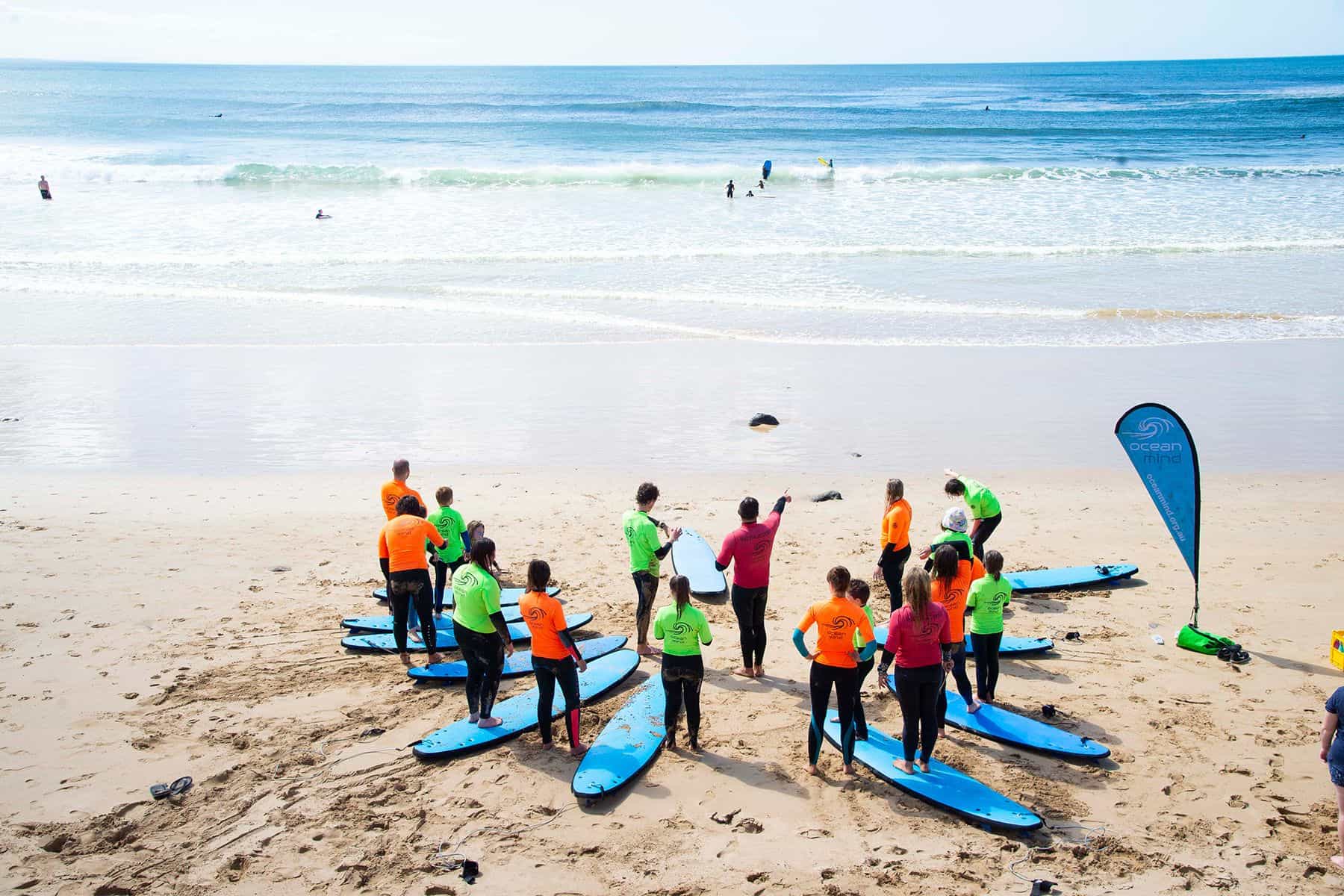
Evaluating The Potentials of Surf Therapy For Youth Mental Health
Young people worldwide are at significant risk of mental illness, with roughly 50% experiencing a mental disorder by the age of twenty-five, and half of these cases occurring before the age of fifteen. These issues can have a detrimental impact on physical health and hinder developmental tasks such as education, work, and relationships, with potential long-term consequences such as unemployment, poor social ties, increased risk of non-communicable disease, and reduced lifespan.
Over the last few years, surf therapy has become a popular intervention for improving mental health among young people. And whilst current literature shows positive effects in areas such as emotion regulation, social and emotional well-being, problem solving, and self-esteem, the quality of evidence is undermined by the small sample sizes and lack of control groups in published studies, leading to bias and limiting researchers' ability to draw solid conclusions about the therapeutic benefits of surfing.
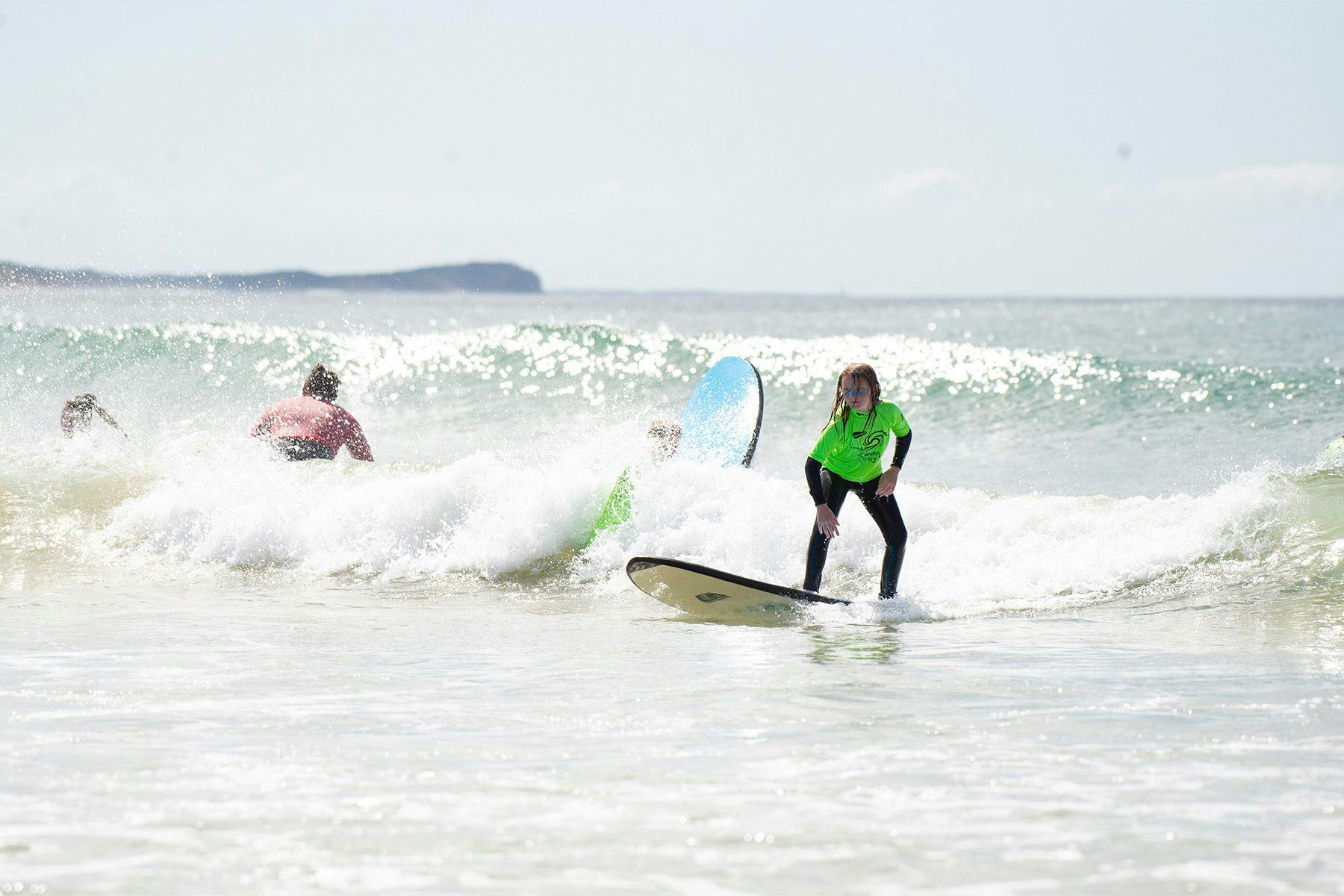
A study published this March aimed to solve that issue. What the authors did differently here was to adopt a randomised control trial (RCT) format to test both the feasibility and acceptability of a surf therapy program to improve symptoms of mental ill-health, as well as find out whether this design is suitable to assess such type of intervention. The research compared a mentor-supported intervention with a wait list control group in Australian children and adolescents aged eight to eighteen who were help-seeking due to reasons related mainly to family violence and/or upheaval, followed by a neurodevelopmental disorder such as ADHD or Autism Spectrum Disorder. The programme, conducted by therapeutic surfing charity Ocean Mind, ran between April and June 2019, with one two-hour surf therapy session per week for six consecutive weekends. Sessions integrated the practice of learning to surf with one-on-one mentoring and group-based activities rooted in cognitive-behavioural therapy principles, with the aim of enhancing core psychological processes common to both internalising (such as anxiety and depression) and externalising (such as aggression, inattention, and impulsivity) mental health issues. A qualified surf instructor with tertiary qualifications in youth mental health led the programme; surf mentors were community volunteers who received pre-program training in mental health literacy and surf instruction. Although all participants received the same group psychoeducation, other program components, such as learning to surf and individual mentoring, were customised to meet the unique needs of each young person.
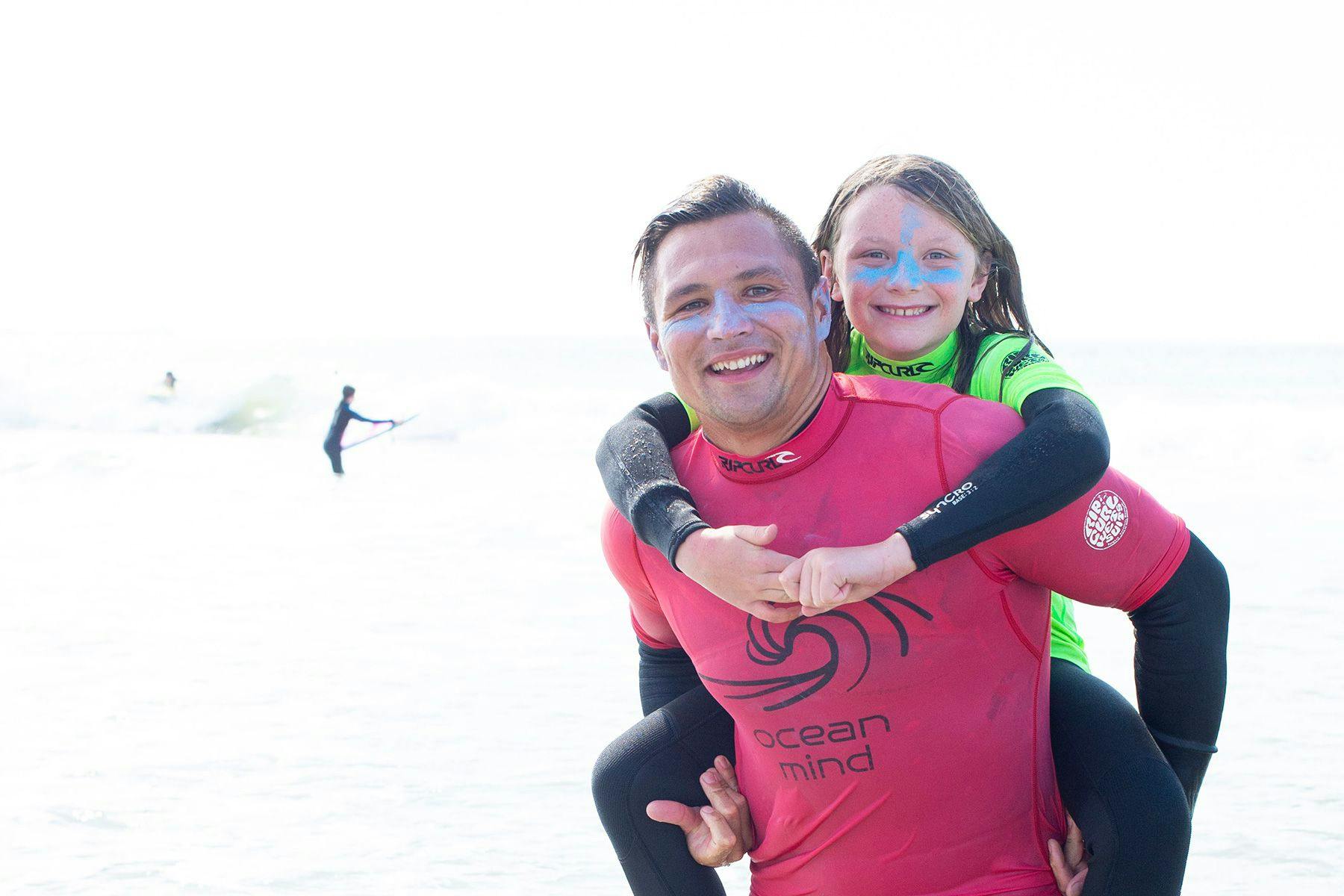
Data was collected prior to randomisation and repeated at the completion of the intervention, and again six weeks later. Findings were divided into two categories, with the first covering outcomes related to the feasibility and acceptability of the intervention (e.g. recruitment ease, retention, and adherence) and the feasibility and acceptability of the study design (e.g. number of eligible participants, participation rate, willingness to be randomised, loss to follow-up rate).
For the intervention assessment, participants were asked to use a 5-point Likert scale (1=strongly disagree, 5=strongly agree) to rate how beneficial they found the program for their mental health and wellbeing and whether they would recommend the program to other young people. All of those who attended at least one therapy session intervention endorsed the ‘strongly agree’ option to the two questions. As for the study design, the authors looked at the number of eligible participants, participation rate, and loss to follow-up rate. Forty-three of the forty-nine young people referred to the Ocean Mind surf therapy programme met the eligibility criteria, which resulted in a participation rate of 84%, with a loss of 28% and 39% for the intervention and control groups respectively six weeks after the end of the programme.
The second category concerned the potential effectiveness of the intervention on child indicators of depression and anxiety, which was determined by child self-reported changes in symptoms both immediately after the intervention and six weeks from the end of the programme. The authors used a combination of the Strengths and Difficulties Questionnaire (a behavioural screening questionnaire for 4-to-17-year-olds) and the Revised Children’s Anxiety and Depression Scale (a self-report assessment of anxiety and depression). The SDQ results indicated that youth reported a decrease in emotional problems, overall difficulties, hyperactivity/inattention, and peer problems right after the intervention. For the RCADS, children who participated in the surf therapy programme reported a decrease in depressive and anxiety symptoms.
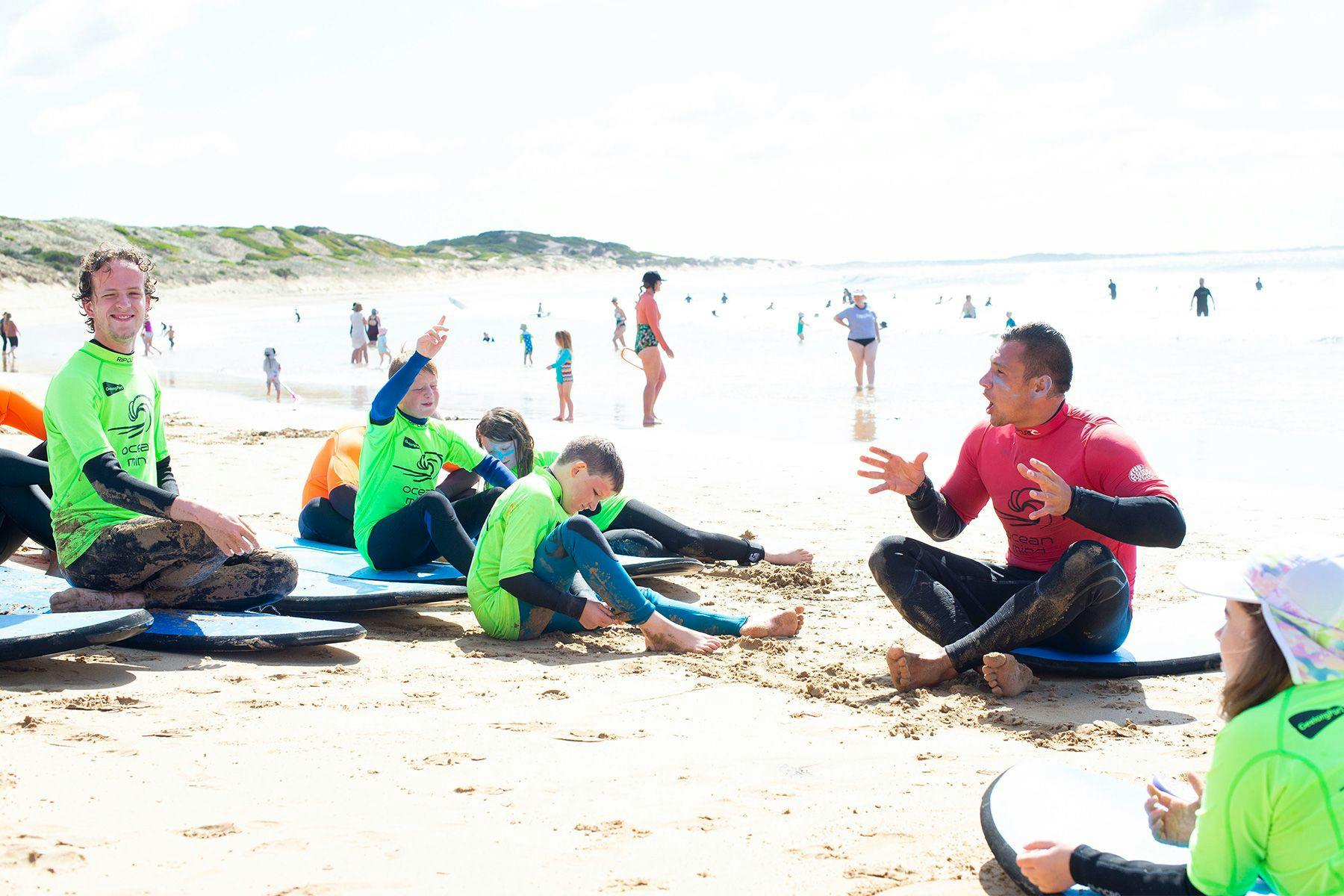
Surf Simply caught up with Dr Lisa Olive, a Senior Research Fellow at Deakin University and the author of the study, to hear more about the research method and the potentials of surf therapy.
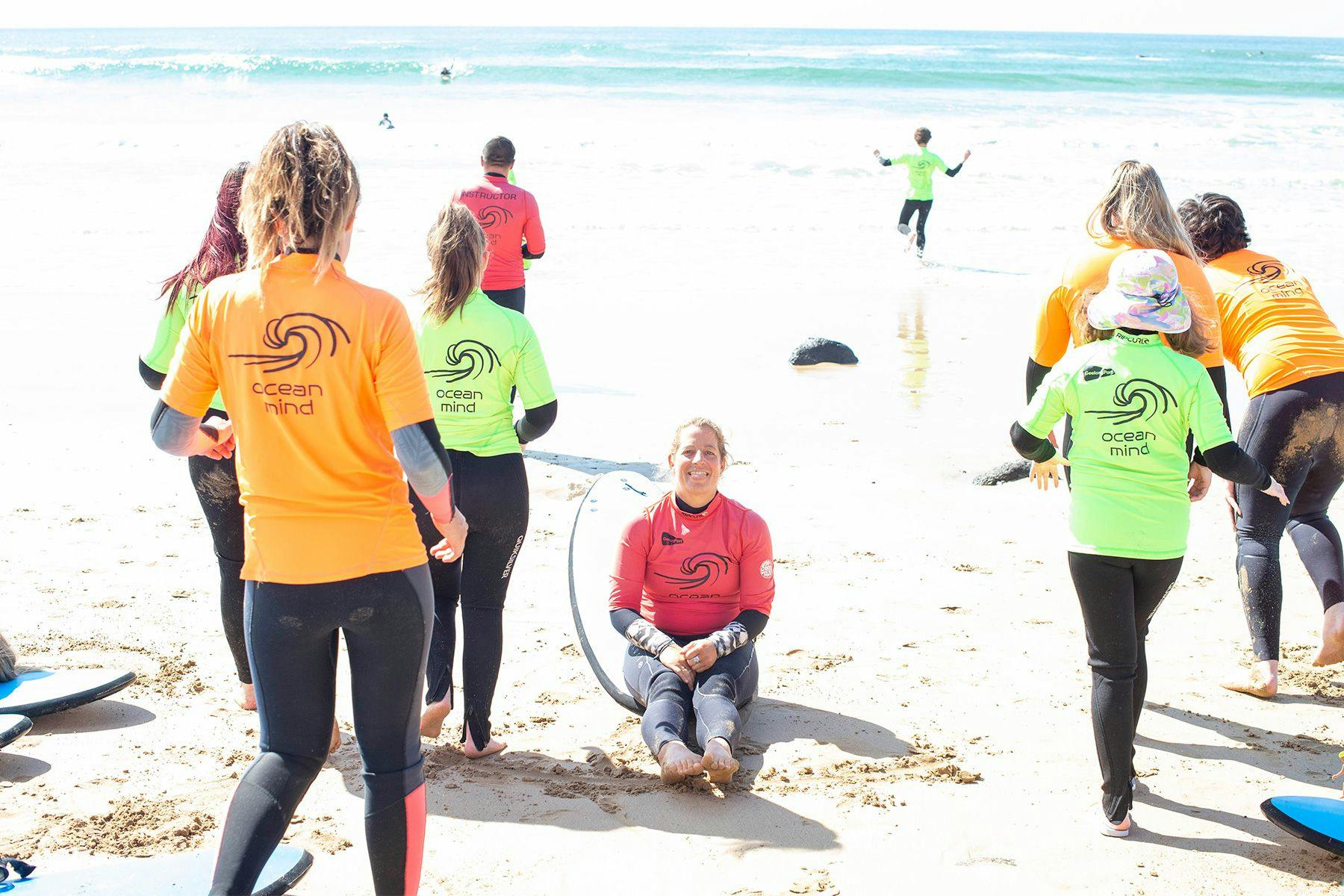
This was the first study on surf therapy to not only include a control group and randomisation, but also show it is a suitable evaluative study design for such interventions. Could you please start by telling us where the idea came from?
The idea for the study was conceived back in 2018 when I attended one of Ocean Mind’s information nights for potential volunteer surf mentors. After hearing Ocean Mind’s founder, Rachel Parker, speak about the needs of the organisation, it got me thinking about how I could use my research expertise to independently evaluate what they were doing. Rachael was really keen to make sure her programs were informed by solid evidence and she was really invested in doing high quality research that was independent from the organisation to ensure it was free of bias. So, instead of signing up with Ocean Mind as a surf mentor I went back and looked into what research was available on surf therapy at that time. There wasn’t a lot of published research; what was available was largely based on small scale studies conducted by a handful of surf therapy providers, like the Wave Project in the UK and Wave by Wave in Portugal. These guys had made a great start on pioneering the surf therapy literature but what was lacking were randomised studies that included a control or comparison group. And this is where the idea for a randomised controlled trial study (the gold standard research method for evaluating programs) was born. It was just good timing with Rachael’s good foresight of the need to undertake a high quality evaluation of her program and my expertise in that area.
Your study was consistent with other research in that it suggests that surf therapy, utilising one-on-one mentoring activities and group-based activities that draw on the principles of cognitive-behavioural therapy, can produce favourable outcomes relating to mental ill-health.In your opinion, what is it about surfing that makes it such an effective tool to help young people with mental ill-health?
In my opinion, it’s likely to be a combination of factors. Emerging research from our group and others, which are based on surf therapy programmes, are showing that any benefit to mental health likely relates to things like increases in self-esteem and self-confidence through experiencing a sense of accomplishment when learning to surf or mastering more advanced skills. Participants have often said this idea of being capable to take on challenging activities transfers to other areas in their life, like school for example. Other factors include increases in social connection with other surfers and a sense of belonging. Surfers in our research also spoke of the respite they experienced from day-to-day stressors and the associated worry/anxiety, due to the all-encompassing focus that is required when surfing. Other potential reasons may relate to our physiological response when surfing, including the release of mood elevating neurotransmitters, like adrenaline and the reduction of stress hormones, like cortisol. And then of course, there’s really strong evidence linking physical activity to improvements in wellbeing and mental ill-health and the potential reasons for this. We also know that for many, exercising in natural environments, and in particular ‘blue spaces’, can have a positive effect on our mood, so these are all likely contributing factors for many surfers.
This is what science tells us, but there are many aspects that are likely playing a role that are yet to be researched. Other psychological factors like facing a fear of failure and embracing uncertainty may play a part in building resilience and general wellbeing. There’s likely a more spiritual path for some, as well as a therapeutic feeling of being connected to nature and perhaps the potential for existential experiences, like realising that you are just a small piece of the puzzle in this world and universe, which gives perspective and may lead to easing worry. A comment made by Irish surfer Easkey Britton particularly resonated with me and I can see how it might apply to the young people who participate in the Ocean Mind program, who may be experiencing family upheaval and uncertain times. She said “when you get in the water and catch a wave, you own your life again.” This really speaks to the idea of self-determination and autonomy, all factors that can positively influence mental health.

From a different perspective, what would you say surf therapy programmes for youth can bring to surfing as a subculture and sport?
Great question! Surf therapy is usually quite different to the dominant surf culture, which for the most part has centred on hyper-masculine ideals. Surfing can be a very privileged activity, and can be rife with localism, which can limit access to waves for newcomers and outsiders. From what I’ve seen, surf therapy programs are none of that but rather the aim of these programs has been to create a safe and inclusive space where surfers of all abilities and from all walks of life can come and feel both physically and psychologically safe, while challenging themselves with the activity of surfing. From an ecosystem perspective, greater diversity leads to greater stability – greater richness and functioning, and while I know many surfers would say “we don’t need any more surfers in the water, most breaks are too crowded as it is”, having a diverse range of participants in the sport of surfing can lead to many benefits and help the sport to keep progressing.
Of the children and adolescents that participated in the intervention, was there a specific case that caught your attention?
With regards to the research, the strength of our study lies in the ability to look at the data together rather than single out individual cases, which our study didn’t have ethics approval to do. By looking at the combined data, we are able to see what trends are emerging among young people and by randomly allocating children and adolescents in our study to receive either the surf therapy program or be placed in the control group, we can have more confidence that any trends we find are not due to some bias introduced by having participants self-select themselves into the surf therapy program. Having said that, from some of our interviews with participants, a common theme that emerged was the idea that being in and near the ocean was seen as a calming experience, be that through distracting youth from their distressing thoughts and worries or through the promotion of positive feelings from being in this environment. A nice quote from a young female surfer captured this nicely when she commented “I love being in the Ocean! It’s actually like my best friend. It calms me down whenever I go there.”
What were the main challenges of this research?
The big challenge with the research was that we evaluated a ‘real’ program, taking place in the ‘real world’. Unlike experiments that are conducted in the lab, this means that it is not as easy to control all the conditions that may influence outcomes. Things like the weather, the ocean conditions, who volunteers to be a surf mentor. These are just a few of the factors that may have influenced mental health outcomes of young people in our study. But really, the biggest challenge with this research, as has been the case for so many research projects over the last couple of years, has been the impact of COVID-19. In Australia, and specifically the state of Victoria where the Ocean Mind program runs, we had the most stringent lockdowns in the country and also for the longest period of time. This meant surf therapy programs had to stop for a time, as did the research, and it also meant that post COVID-19 lockdowns, the surf therapy programs had to be adapted for a while to meet the government’s social distancing requirements and so on. But luckily, we are back up and running now with the research and just about to finalise data collection from our final program. To Ocean Mind’s credit, they were very agile and able to respond to these challenges to keep their programs running as much as possible, at a time when the young people really needed them most.
The results were unique in how they showed that those receiving the intervention reported reductions in symptoms of depression, anxiety, emotional problems, etc., whereas the control group reported increases in mental ill-health symptoms across the same time period. However, these improvements on the intervention participants were not sustained after the programme ended. What were some of the reasons for this? And what would be some solutions?
This is a really important finding from our study, and highlights the importance of including follow-up periods in any program evaluation. Many studies in surfing undertaken to date don’t include follow-up assessments like ours. What we saw in our study is a common finding in many program evaluations, in that once a program finishes, often the positive effects start to fade as well. We can’t be sure why this happened in our pilot study and this is something we are looking at more closely in our full scale study that is about to be completed. But a really important goal for surf therapy research is to work out what is the optimal does of surf therapy programs in terms of session frequency, duration, and program length. Similar to other medical or psychological treatments, determining the length of each surf therapy session and how many sessions are needed to produce a given psychological or functional outcome is really important and it may be that the dose in our study wasn’t enough. Surf therapy may also provide a soft entry or a gateway to other mental health treatments, if and when required, so that the initial benefit can be built on through continued mental health support. Working out how to bridge this gap between services is another important goal.

In the paper, you write: “In considering why favourable effects on mental ill-health were seen in the current cohort, it may be that positive effects on child/adolescent mental health relate to the interpersonal relationships, a sense of connection/belonging to the group and social support received during the program. This premise relating to interpersonal and group factors is supported by prior investigations in surf therapy.” I was wondering if you could/would like to comment further on that?
This is a really interesting area of the program for me. In our larger full-scale randomised control trial, which will be finalised this year, we are assessing some of these possible social/group processes. What we are hypothesising is that there are a number of factors at play. These include things like a sense of psychological safety – an environment that encourages, recognizes and rewards individuals for their contributions and ideas by making individuals feel safe when taking interpersonal risks – that is created among participants on each program. The Ocean Mind leaders and the mentors do a great job at facilitating group norms that value positive and supportive interpersonal interactions and create a strong sense of belonging or connection to the Ocean Mind surf therapy group. Because of this, these group norms are usually internalised by individual group members, who then want to uphold the values of the group by behaving in ways congruent with being empathetic, non-judgmental, supportive and so on. We believe this helps to create a psychologically safe space and the perfect environment to heal, grow and develop. Another important element of the Ocean Mind program is the one-to-one mentorship that each young surfer receives. This allows for very rich and deep connections to form between the young participants and their mentor. Mentors seem to really cultivate a sense of unconditional positive regard for their child mentee, and this seems to spread within the group, adding to a sense of a psychological safe space in which to explore vulnerabilities and take risks, make mistakes and challenge yourself.
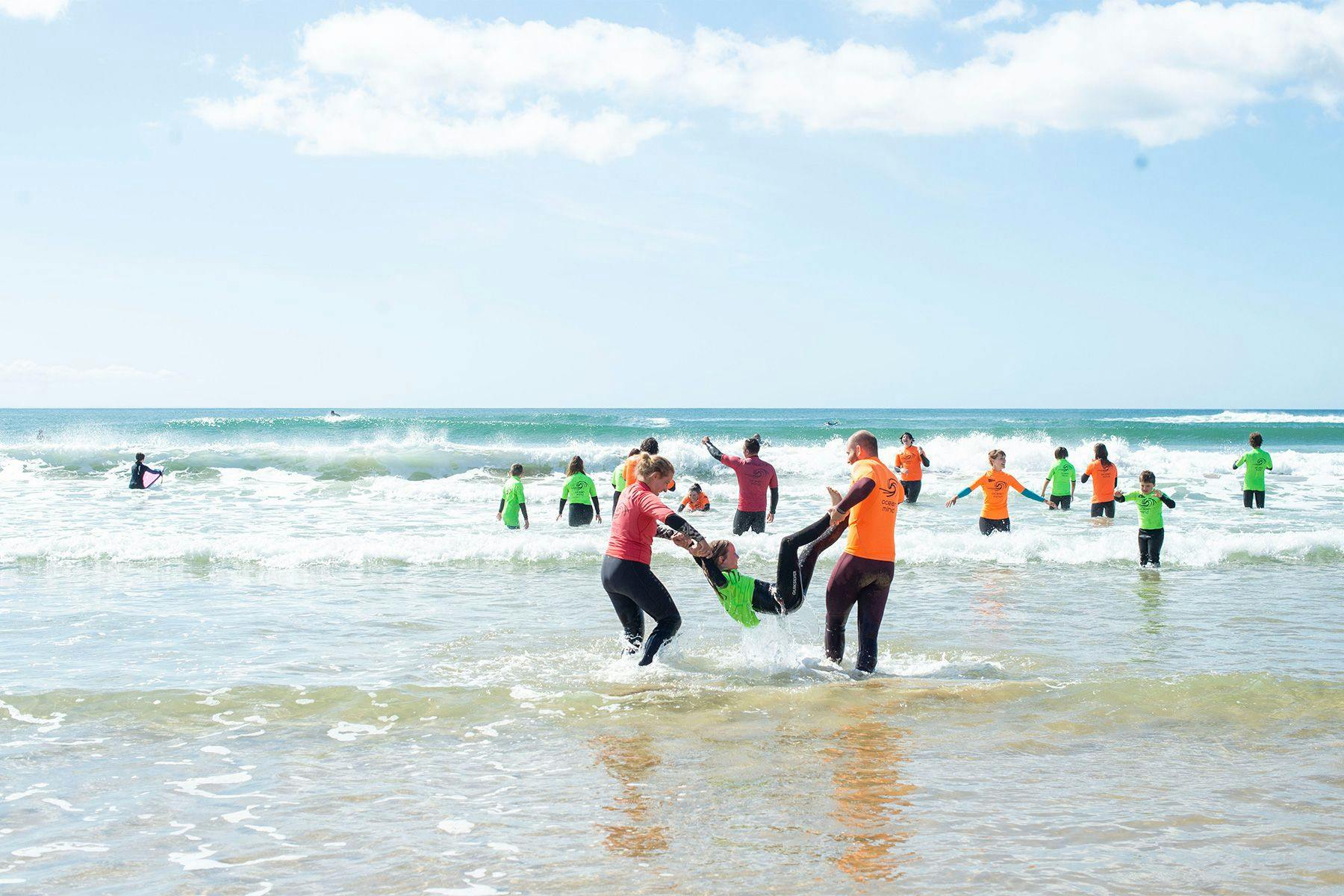
If a community, organisation, or local governing body wants to develop a surf therapy programme for youth with mental ill-health, what would be your initial recommendations?
Firstly, I think there’s real promise for alternative or adjunct forms of treatment like surf therapy, for improving mental ill health in youth, and I would encourage people to look into how these might work in their own context or community. When it comes to setting up a new program, if you have the time and resources, I would suggest you really do your homework before you start. What I mean by that is making sure you understand the need in the community so that you end up developing a program that is of most benefit to the community you are choosing to serve.For example, if it is improving mental ill health that you want to target, then start by understanding the prevalence and the characteristics of the young people at risk of mental ill health in your community. How will you reach these young people? Who in your community can support you with this and what resources already exist that may be integrated into your programs? Or how can you compliment any existing programs and resources?
While this takes a bit of time and energy, this background information can really help you tailor your program to the unmet needs of the community you wish to serve, which can help with the effectiveness and sustainability of your program in the long term. For example, perhaps there’s a lot of family violence in the area, or a high prevalence of anxiety. Knowing these specific details allows you to develop a program that is really targeted to the needs of the young people in your community. Once you know this, you can start to develop a program that uses evidence-based strategies that work on those specific issues. I’d also suggest trying to understand any potential facilitating factors or barriers to participation that exist in your specific environment/community.I would also suggest ensuring you build in evaluation of your program right from the start, so you know what impact you’re having and how/why. This also helps with obtaining funding as you grow and evolve. For more details on setting up a surf therapy program readers can check out our published paper discussing what we did with Ocean Mind in the surf therapy special issue of the Global Journal of Community Psychology Practice. But be warned, it’s fairly heavy on theory, so take it with a grain of salt and use what you can or what is feasible in your situation.
Why would you say it’s important for your everyday surfer to get involved in initiatives such as surf therapy? And how can they do so – is there something beyond volunteering?
I think as surfers, as a group who get so much from the ocean, that we have a responsibility to also think about what we can give back to this environment, and the communities in which we surf. Be this in terms of environmental issues and minimising our impact on the ocean and its ecosystem to preserve our oceans; or more specific to our research, by helping those who may be less privileged or those just having a bit of a hard time at the moment, to help these people access these environments and the opportunity for healing. When it comes to mental ill-health, globally, one in seven 10-19-year-olds experiences a mental disorder, which represents a huge burden on the individual, their family and society in general. The way I see it, being part of a program or initiative that is helping to reduce this burden is a valuable and worthwhile way to spend my time on this earth. There’s a lot to be gained not just for the participants but also for the volunteers, so go for it! Ocean Mind has a number of opportunities to get involved with surf therapy. Anyone in Melbourne or the Surf Coast area of Victoria Australian can check out these opportunities here. Or I would suggest contacting a surf therapy program in your local area and see how you might be able to help out.
You emphasise that “there is an urgent need to establish novel, youth-friendly and accessible community-based services that resonate with youth values, and that complement primary care models of youth mental health service delivery.” With that in mind, how do you see the space of surf therapy in health services growing in the future?
In terms of the science to support the benefit of surf therapy for treating mental ill-health, it’s still early days. Groups like the International Surf Therapy Organisation are really trying to advocate for more high quality research, which can be used to lobby government bodies and the like, with the aim of surf therapy becoming a prescribed mental health treatment within the next five years. The UK has already begun a trial of a similar system through an NHS supported study of the Wave Project, so that’s really exciting to see, as this is the first government supported prescription of surf therapy in the world. The Wave Project also has plans to build the world’s first purpose-built Beach School in Cornwall, UK, to support local children who struggle to engage with traditional school lessons and who are at risk of permanent exclusion. So there’s lots happening in this space, with more and more surf therapy programs popping up all around the world both in the form of clinical programs (both 1-to-1 and small group programs) but also in a health promotion capacity, which means more and more young people will be able to access surf therapy programs through both the health and education systems.
**********
The author and Surf Simply would like to thank Dr Lisa Olive for her help and Ocean Mind for providing the photographs. For more info on their surf therapy programmes, visit their website.